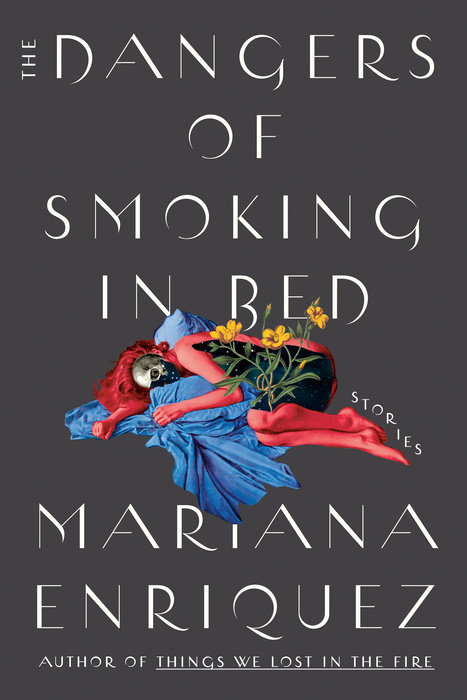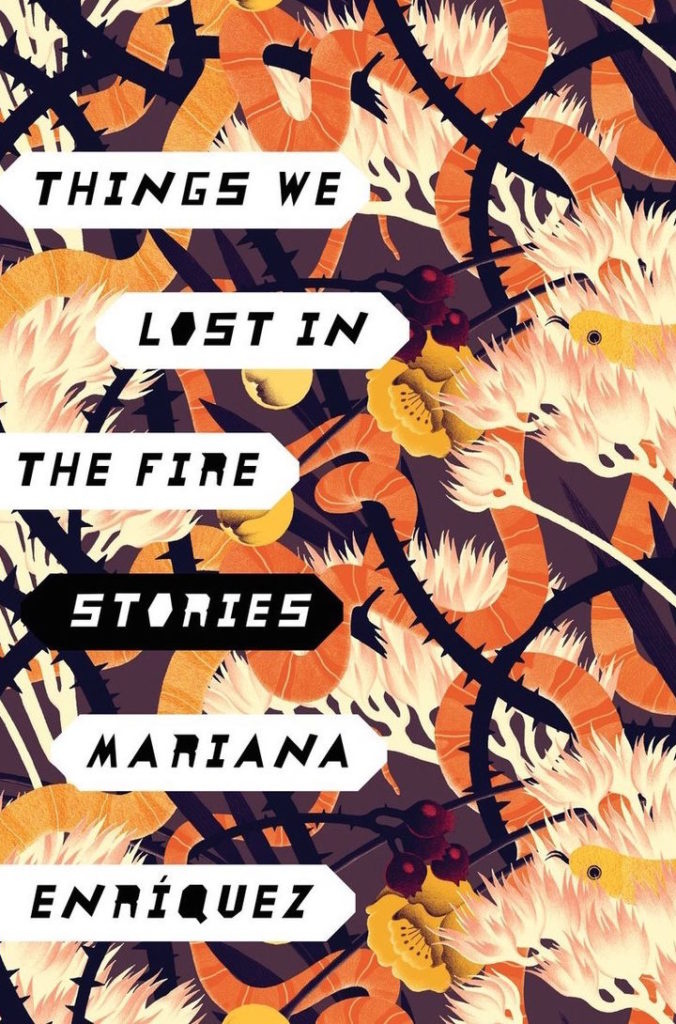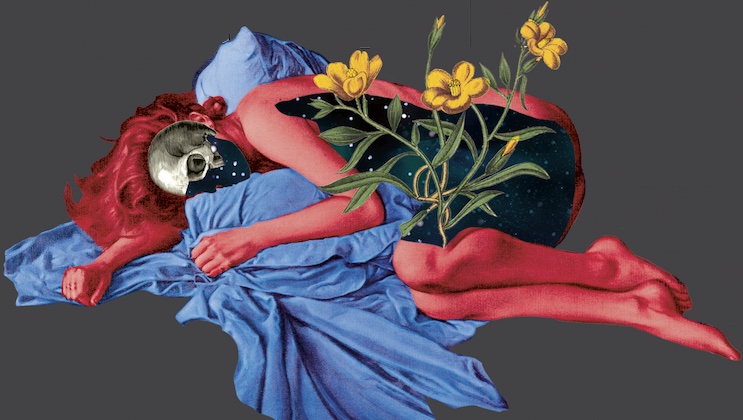The first story in Mariana Enriquez’s latest translated short story collection, The Dangers of Smoking in Bed, finds a woman haunted by the ghost of her great-aunt. The catch: her great-aunt died as an infant, and the ghost who stalks her steps is a rotting, mewling newborn as confused and upset as its living relative — and, quite possibly, you.

I have never met an Enriquez short story I wasn’t simultaneously repulsed and riveted by. (The content warnings for her collections run about as long as their respective page counts.) She acts as a doula for the grotesque and ghoulish, ushering into the world strange spectacles from her macabre, miasmic version of Buenos Aires.
But you don’t read Enriquez’s stories simply for the shock factor of two teenage groupies eating the dead flesh of their music idol (“Meat”) or of a young woman who fetishizes heart defects and disease (“Where Are You, Dear Heart?”). You read these stories — in Megan McDowell’s devilishly descriptive translations — for the women who populate them.
There are, of course, men in Enriquez’s stories, but, by and large, they are peripheral: villains, cuckolds, or prey. These, instead, are stories of women and the hell alternately wrought upon and by them. An example of the latter is “Our Lady of the Quarry,” a standout entry from The Dangers of Smoking in Bed, when a gaggle of teen girls enlists supernatural aid in ruining the lives of their crush and the older friend who snagged him.
The best example of the former — of the misery brought down upon these women by a world run by men — is the titular story from Enriquez’s previous collection, Things We Lost in the Fire. In it, women across Argentina begin setting themselves on fire in resistance to rampant, ever-present domestic violence. Their aim is not to die; instead, they carry on as disfigured, visible manifestations of the all-too-silent epidemic of violence that has plagued them.

“Burnings are the work of men. They have always burned us,” the women say. “Now we are going to burn ourselves. But we’re not going to die; we’re going to flaunt our scars.”
It is one of the most objectively horrifying short stories I have ever read. There are no supernatural terrors, no ungodly horrors — just exaggerated reality. That’s Enriquez’s specialty: unsparing looks at the interior lives of women, as warped and unruly as they may be.
None of this is to say Enriquez writes purely in feminist howls (though I wouldn’t object if she did). Her stories explore all manner of inequalities related to race, class, and gender; “The Dirty Kid” from Things We Lost in the Fire is an eerie glimpse of poverty, and “Rambla Triste” in The Dangers of Smoking in Bed performs a Danse Macabre for the victims of pedophilia.
All manner of injustices are probed in these pages, but they are most often seen from the eyes of those who experience the brunt of the true-to-life, intersectional horror: women and, even more specifically, young women.
Enriquez draws you in with the gory and the grotesque, invites you into the haunted house (a la “Adela’s House”) but only to make you look — truly look — at the picture before you. She keeps you there with swirls of black magic or rotting ghost children or graveyard cannibals so you won’t look away.
McDowell sums it up best in her translator’s note for Things We Lost in the Fire: “The horror comes not only from turning our gaze on desperate populations; it comes from realizing the extent of our blindness.”



